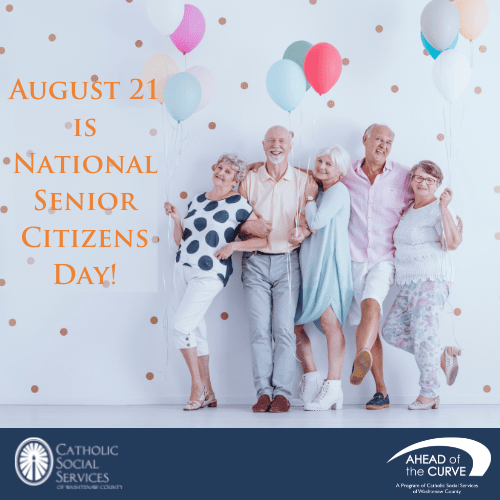National Senior Citizens Day falls on August 21 every year. What is this holiday and how do we celebrate it? Is it an actual holiday or a Hallmark holiday meant to sell cards after the 4th of July holiday? Read on for more information.
What is it?
President Ronald Regan marked Senior Citizens Day as August 21 in in 1988. The thought behind the holiday was to designate a day to raise awareness of issues facing older adults and celebrate the accomplishments of the older generation.
Why do we celebrate it?
For the answer to this question, we look to Regan himself:
“Throughout our history, older people have achieved much for our families, our communities, and our country. That remains true today, and gives us ample reason this year to reserve a special day in honor of the senior citizens who mean so much to our land […] For all they have achieved throughout life and for all they continue to accomplish, we owe older citizens our thanks and a heartfelt salute. We can best demonstrate our gratitude and esteem by making sure that our communities are good places in which to mature and grow older — places in which older people can participate to the fullest and can find the encouragement, acceptance, assistance, and services they need to continue to lead lives of independence and dignity.”
https://www.reaganlibrary.gov/archives/speech/proclamation-5847-national-senior-citizens-day-1988
How do we celebrate?
- Volunteer at a senior center or senior living facility
- Reach out to your elderly relatives (they’d probably love a phone call from you!)
- Take your parents or grandparents out for a nice meal
- Start studying your family’s genealogy to learn about the accomplishments of your ancestors.
- Send thank you cards to older adults in your community
- Donate to agencies that serve older adults
- If you’re an older adult, enjoy some shopping with your senior discounts!
There’s really no wrong way to celebrate the older adults in your family and community. Happy National Senior Citizens Day from Ahead of the Curve!






